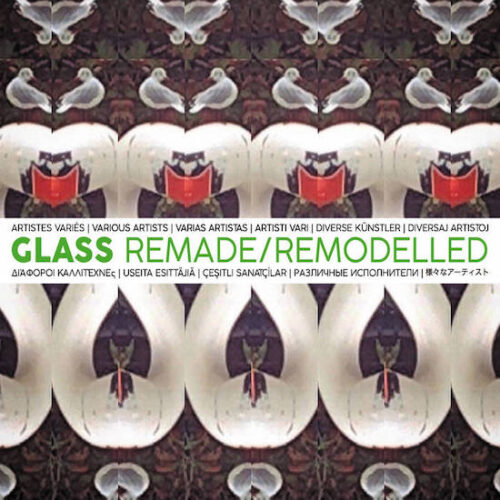This collection is a thing of beauty. A celebration of independent pop music. Not ‘indie’ as we know the term today, and whatever that means, its definition of being unassociated with a major label long gone. But rather ‘independent’ in the true sense of the word, when labels would spring up simply because the people behind them absolutely loved music and the idea of getting it out into the world, with all the fun and excitement along the way, was irresistible. Glass Records was one such enterprise, lasting almost a decade from 1981 on, and releasing acts such as The Pastels, David J, Jacobites, Spacemen 3, The Jazz Butcher, and even The Replacements, amongst a host of interesting others. Glass Remade/Remodelled features twenty songs originally released on the label covered by a mix of Glass alumni and friends.
Kicking off the comp, Bristol’s Snails do a great job of capturing the youthful cocktail of romance and cynicism in The Pastels’ ‘Automatically Yours’. Breezier and more controlled than the original’s frenetic pace, moving the guitar solo to an intro melody and with some new parts as well, nevertheless the spirit comes across. Up next, switching out the guitars and drums for synths and machines, and adding a vocoder for the B section, wor_kspace offer up a triumphant version of The Perfect Disaster’s ‘Bluebell’. A strong Jesus & Mary Chain vibe, combining Automatic electronics with Psychocandy swagger. In a better world, either take on this song would be a staple of indie discos across the globe. And back to The Pastels for track three. The band are covered four times over the course of the comp, surpassed only by the five Jacobites tunes. Everything about Gerard Love’s rendition of ‘If I Could Tell You’ is lovely. Packed with great little guitar runs, Love musically moves the song towards something that wouldn’t be out of place alongside Saint Etienne’s more acoustic instrument moments, circa Good Humor.
The strength of these three opening tunes are a run-up to perhaps the highlight of the record, Stephen Duffy’s beautiful interpretation of Dave Kusworth’s ‘Little Bird’. A full-bodied vocal over a sparse piano-based arrangement, with guitars entering more and more over the course of the recording. Duffy even keeps the slight increase in tempo around a minute in, but whereas the original gets a bit frantic, Duffy keeps the pace under control. The other highlights of this comp are David J-related, and both contain the word ‘tears’. The man himself’s take on another Dave Kusworth-penned Jacobites tune, ‘It’ll All End Up In Tears’, is gorgeous. Besides J’s heartfelt vocal delivery, he also brings out and enhances string lines that were only hinted at by Nikki Sudden’s synths on the original. And Astrid Swan’s version of ‘Crocodile Tears & The Velvet Cosh’ gives the Bauhaus bassist a run for his money. Swan changes the feel and pulse of the original around, not too far away style-wise though it does seem like another song entirely. One that’s quite strong, with the sensual inflections of her voice making it all the more enticing.
Something that really jumps out from this collection is what a fantastic songwriter Dave Kusworth was, and that a full compilation of Kusworth covers would be an excellent idea. The Jazz Butcher’s lovely adaptation of ‘Silver Street’ further proves this. And although one could never hope to top the pop perfection of Jacobites’ ‘Pin Your Heart To Me’, good on Luke Haines for giving it a go.
Though such arrangements provide a lot of its best material, the record isn’t all stripped down acoustic numbers. Richard Young and Jowe Head each offer more experimental versions of Pastels songs. And Matthew Shaw shows that, surprisingly, Spacemen 3’s ‘Mary Anne’ works perfectly well as drugged out electro-pop, a synth bass pulse evoking narcotic night time drives through urban landscapes. Sure, the record might be more concise if it restrained itself to one musical style, but that’s never what the pioneering indie labels of the 80s were about. That spirit continuing here, bringing great new reflections on classic Glass cuts.



